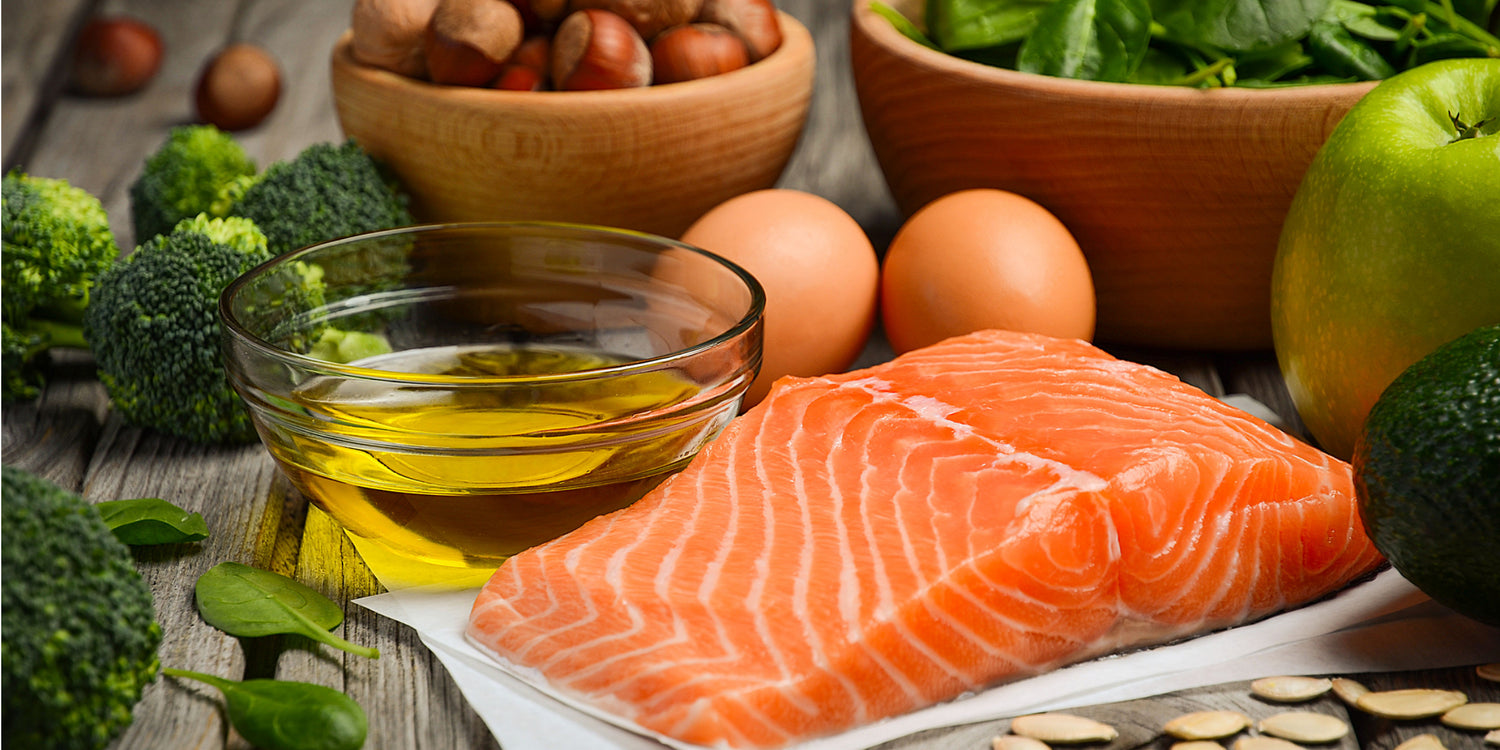Embarking on a culinary journey for joint health, Australians are increasingly aware that the food they consume can have a profound impact on their well-being. As we navigate through a myriad of dietary choices, it becomes clear that certain foods can trigger joint pain, while others can provide much-needed relief. This connection between our diet and joint health is not merely about managing discomfort; it’s about enhancing life’s quality, enabling us to live fully and actively. With each meal, we have the opportunity to either contribute to the inflammation causing joint pain or to choose healing, nutrient-rich foods that support joint health and mobility. Understanding this relationship is vital for anyone looking to mitigate joint pain and improve their overall health.
Importance of Managing Joint Pain

When it comes to overall health and well-being, one cannot overlook the importance of managing joint pain. Joint pain can be debilitating and hinders individuals from performing their daily activities with ease. Whether it is due to arthritis, injury, or inflammation, finding ways to alleviate and manage joint pain is crucial for leading a healthy and fulfilling life.
One of the key factors in managing joint pain is maintaining a healthy diet. Consuming the right nutrients plays a vital role in reducing inflammation and promoting joint health. Incorporating foods that are rich in omega-3 fatty acids, antioxidants, and vitamins can help alleviate joint pain and even prevent further damage.
One of the main causes of joint pain is inflammation, and incorporating certain foods into one's diet can help combat this issue. Healthy fats, such as those found in fatty fish like salmon and tuna, are a great source of omega-3 fatty acids. Omega-3 fatty acids are known for their anti-inflammatory properties, reducing the swelling and pain associated with joint inflammation.
Furthermore, antioxidants found in fruits and vegetables can also play a significant role in managing joint pain. Berries, such as blueberries and strawberries, are loaded with antioxidants that help neutralize harmful free radicals in the body. These free radicals can cause inflammation and damage to the joints, leading to increased pain. Adding these vibrant berries to your meals or enjoying them as a snack can provide a natural and delicious way to manage joint pain.
In addition to omega-3 fatty acids and antioxidants, certain vitamins are essential for maintaining joint health. Vitamin C, found abundantly in citrus fruits like oranges and grapefruits, is known for its role in collagen synthesis. Collagen is a protein that helps maintain the integrity of joints and connective tissues. By increasing the intake of vitamin C-rich foods, individuals can promote healthy joints and reduce the risk of joint pain and stiffness.
It is important to note that managing joint pain through diet should not be seen as a standalone solution. Regular exercise, physical therapy, and other medical interventions may also be necessary depending on the cause and severity of the joint pain. However, incorporating a diet rich in healthy foods for joint pain can undoubtedly contribute to overall joint health and alleviate discomfort.
The Role of Diet in Joint Health

When it comes to joint health, many factors come into play. Our joints are essential for our everyday movements, and ensuring their well-being is crucial for maintaining an active and pain-free lifestyle. While exercise, proper rest, and medication have long been considered vital for joint health, diet too plays a significant role in preserving and nourishing these vital components of our bodies.
Foods That May Cause Joint Pain
The typical Australian diet, often high in processed foods and quick meals, can inadvertently contribute to inflammation, a key factor in joint pain. Here’s a more detailed look at some common inflammatory foods:

- Added Sugar: Ubiquitous in processed foods, added sugars can initiate an inflammatory response. Excessive intake of sugar has been associated with increased production of pro-inflammatory cytokines and a reduced production of anti-inflammatory cytokines.
- Trans Fat: Despite efforts to reduce their presence, trans fats can be found in certain foods and are linked to systemic inflammation. They increase inflammation throughout the body and are implicated in various chronic illnesses, including arthritis.
- Processed Meat: Meats that are preserved and processed are often high in additives that may contribute to joint discomfort. Processed foods can generate oxidative stress, leading to cell damage and further inflammation.
- Omega-6 Fatty Acids: Essential for health, but an imbalance favoring omega-6 over omega-3 fatty acids can lead to inflammation. However, recent studies suggest that omega-6 fatty acids do not cause inflammation and are actually anti-inflammatory.
- Red Meat and Saturated Fats: A diet high in animal-based fats, particularly from red meat, has been associated with increased levels of inflammation, which may worsen swelling in the joints and arthritis symptoms.
- Refined Foods: Foods that have been heavily processed and refined often lack nutritional value and can lead to an increase in inflammatory responses. Dietary patterns high in refined starches, sugar, and saturated and trans-fatty acids are linked to the activation of the innate immune system.
Foods That Help with Joint Pain
In contrast, numerous foods can help alleviate joint inflammation, many of which are integral to the Australian diet:

- Salmon: Rich in omega-3 fatty acids, salmon is known for its anti-inflammatory properties. Omega-3 fatty acids play a role in reducing inflammation in the joints, particularly in conditions like osteoarthritis.
- Turmeric: The active compound in turmeric, curcumin, has potent anti-inflammatory effects. It has been shown to help with the painful symptoms of both osteoarthritis and rheumatoid arthritis due to its anti-inflammatory properties.
- Olive Oil: A cornerstone of the Mediterranean diet, olive oil is filled with monounsaturated fats that can help reduce inflammation. Extra virgin olive oil, in particular, has been studied for its protective benefits in inflammatory autoimmune diseases like rheumatoid arthritis and lupus.
- Green Tea: Known for its rich polyphenol content, green tea has anti-inflammatory effects. The EGCG in green tea may protect bones and cartilage by decreasing the production of molecules that trigger inflammation and joint pain.
- Blueberries: Packed with antioxidants, blueberries can help reduce inflammation. These small fruits are big on antioxidants, which can help tamp down inflammation and are beneficial for overall joint health.
Complement your healthy diet with a massager like the RENPHO Air Compression Knee Calf Massager with Heat. This device is designed to enhance circulation, soothe tired muscles, and provide a comforting warmth that can help alleviate joint pain. The massager’s air compression technology targets the knee and calf areas, which are common sites of discomfort for those suffering from joint pain. By using it for just fifteen minutes per day, you can experience significant relief from muscle fatigue, faster recovery from workouts, and reduced inflammation. The heat function adds an extra layer of relaxation, promoting blood flow and providing a gentle, soothing experience that complements the anti-inflammatory benefits of a well-curated diet.
In addition to dietary changes, incorporating the use of the Air Compression Knee Calf Massager with Heat into your routine can offer a practical and enjoyable way to support your joint health. It’s especially beneficial for individuals who stand or sit for long periods, experience leg pain after exercise, or suffer from conditions like edema or varicose veins. The portable design means you can enjoy these benefits anytime, anywhere, making it a convenient tool for maintaining mobility and comfort in your daily life.
Renpho Health Tips
-

3 Simple Home Workout Moves for Your Next Leg Day
Apr 10, 2023
Read more >
-

5 Desk Stretches for a Healthier Workday
Apr 17, 2023
Read more >
-

Revamp Your Routine: 5 Easy Detox Methods to Boost Your Mood and Increase Happiness
Mar 22, 2023
Read more >
-

5 Stretching Exercises You Can Do To Power Your Cardio Workout
Feb 6, 2023
Read more >
-

6 Walking Workouts to Reduce Stress: Steps and Tips
Apr 10, 2023
Read more >
